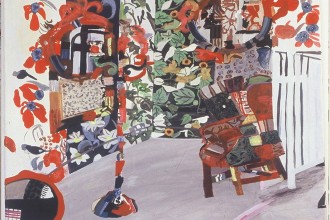Having translated short stories, written poetry, political and social commentary, a travelogue, and even economic analyses reports, which writing style comes most naturally to you?
A degree in English Literature has come up on many lists of “most useless degrees/majorsâ€. Hanif Kureshi has also recently said that creative writing courses are a “waste of timeâ€. What is your take on such dismissals as someone who has studied English Literature and is teaching both literature and creative writing courses?
If one takes up a field of study only because it is “useful,†in the sense that it provides a means for making money, then one doesn’t really love the subject. It is the material benefits that person wants, and there are many ways of obtaining these. On the other hand, if you love a subject, whether you study it academically for a degree or on your own, the joy and satisfaction that provides is recompense enough. Having said that, being involved with the academe now for twenty years, I have seen English majors go on to become doctors, lawyers, engineers, economists, entrepreneurs, editors with major publishing houses, you name it. And I have also seen them go on to graduate school and become reputable scholars and outstanding teachers.
As to creative writing courses, I am openly critical of them and yet I teach them and see their benefits. I want my creative writing students to know their field and their craft well, but be bold enough to break the rules, all of them, if their creative impulse propels them in that direction, as long as they are able to produce work that avoids being inane, and flat, and predictable, and sloppy. And some of these students have gone on to do stellar work, have published in well-regarded journals, and read their work at the most sought after venues. After all, in the pre-creative-writing program era, aspiring writers read the literature that was available to them, because this is what brought them joy and satisfaction, this is what they wanted to do, and attached themselves to a some prominent literary figure to learn the craft and seek feedback on their amateur exercises. A creative writing course pretty much functions on the same principles, except that there are several students to deal with and they all meet at the same time as a class. Yet there are several individual sessions during the semester with each student as well.
As a teacher, what would be your one piece of advice to students studying English Literature in Pakistan? I am asking specifically about Pakistan because I myself have studied literature at a local university and have found the experience lacking in some ways.
A lot of English literature programs in Pakistani universities that I know of are ill-conceived and shallow. This may gradually change, but it appears Pakistan does not yet have enough trained specialists in this field to deliver a decent education in English literature. This is a fast evolving area of study and the titles of courses as much as their descriptions are under constant revision. So is the name of the discipline itself. Shall we follow colonial practice and continue calling it English literature, or shall we recognize our changed political status and the developments that have already taken place in the world of former British colonies and rename it Literatures in English? Shall we continue to pay obeisance to the same old canon that was established to keep women, minorities, and colonials out of its hallowed ranks or shall we recognize the problems of canon formation and devise a curriculum that would be more in keeping with the world we actually now live in? These are crucial questions and need serious and urgent attention by qualified experts if they are to deliver an education that truly meets the demands of the modern world and the needs of the fresh young students who are being prepared to take on the responsibilities of the future. I strongly suspect that Pakistani professors of English literature may have actually failed their students in this regard.
Finally, you were a part of a magazine called Cactus. What place do you think such magazines and journals have in promoting new voices in literature and fostering a literary culture? And what in your opinion is the future of such publications, given that we live in an age where reading and writing habits are fast declining?
Such magazines are crucial to the health and vibrancy of a literary culture. In fact, they are the index of a lively and dynamic creative environment. Reading and writing habits may or may not be declining, but they are indispensable for personal growth and collective development. With the digital media, the options for acquiring, enhancing, and practicing these skills are greatly enhanced. So also are the possibilities of publication and dissemination of one’s work. I refuse to be pessimistic about the future. Each generation finds its own way of overcoming difficulties and setbacks, and charts out its own avenue for accomplishment and success.
Sana Hussain is Features Editor for the magazine.




